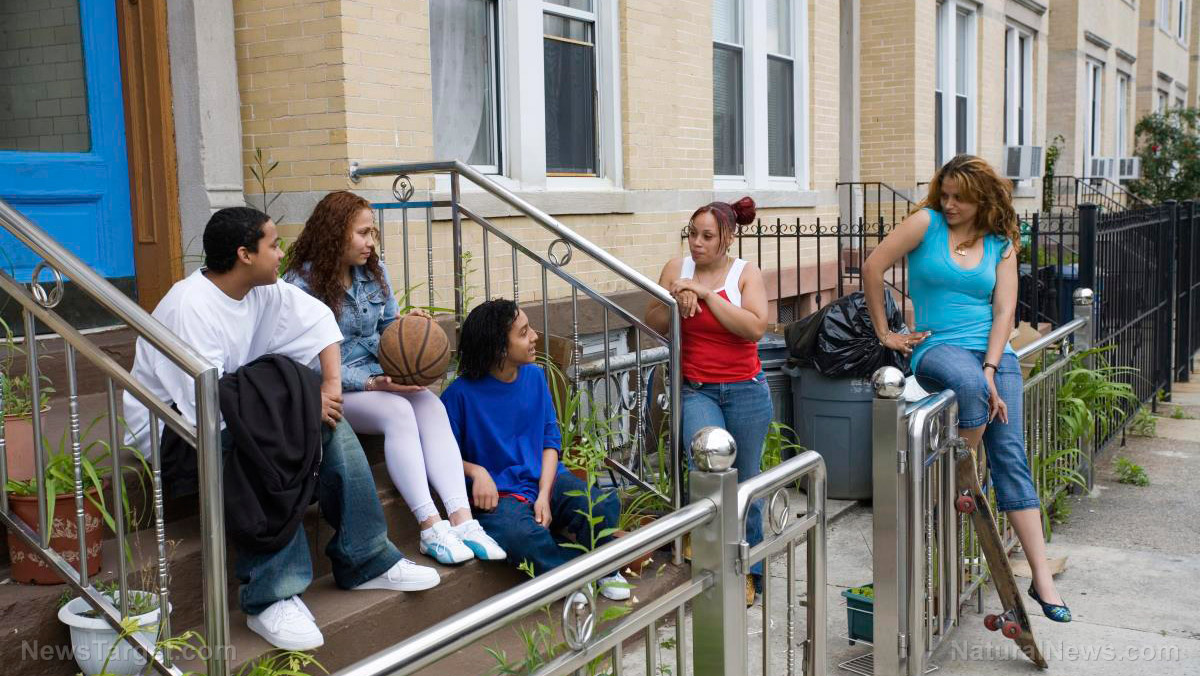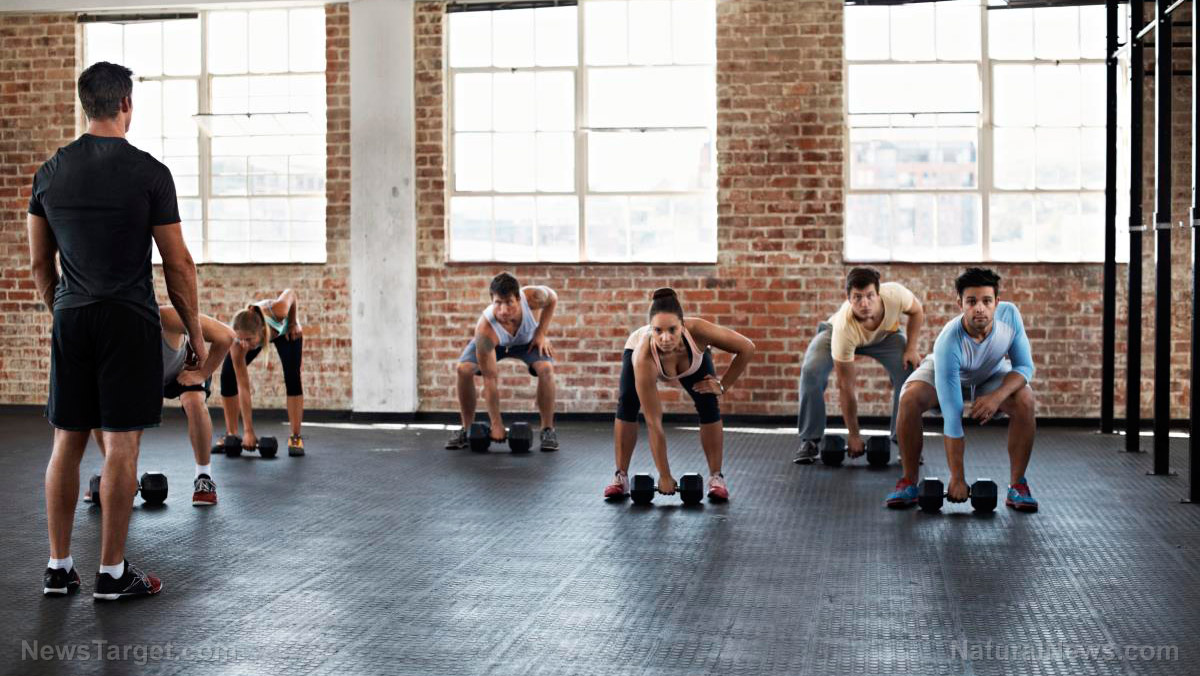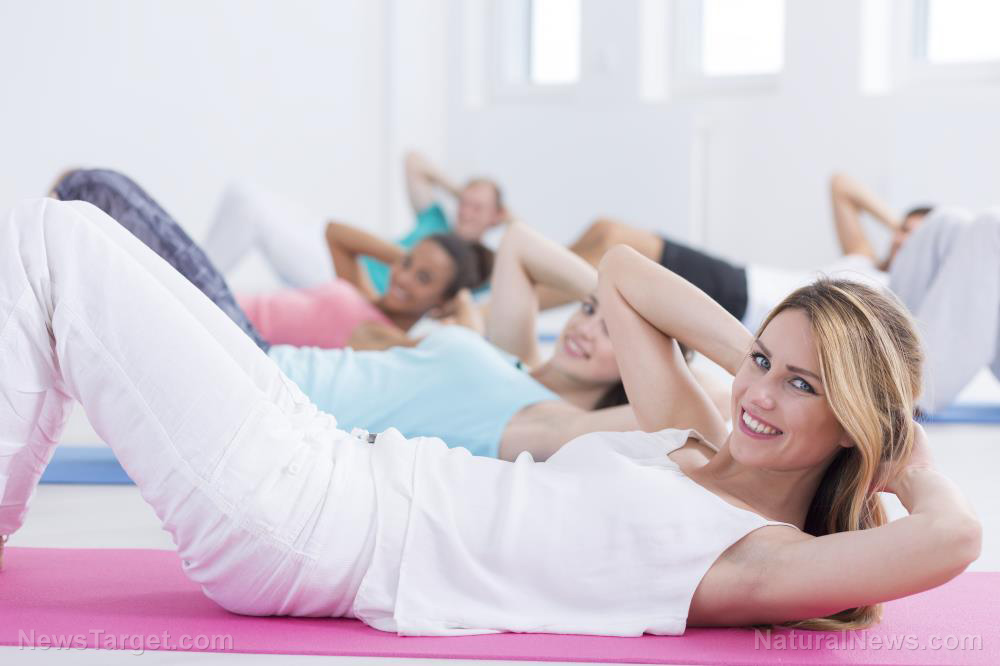Tai chi better than strength training and aerobics at preventing falls among seniors
11/27/2018 / By RJ Jhonson

Tai chi, an elegant Chinese exercise that uses slow and graceful movements, outperforms the combination of aerobics, strength training, and balance drills in preventing falls in older individuals, according to experts.
Aging is characterized by many changes in both a person’s body and mind. The senses become feebler and bodily coordination becomes less fine-tuned. Both the muscles and the bones become frailer, too. These changes not only limit the mobility of older people, but they also make seniors more prone to injury.
Indeed, while a fall may be no more than a minor mishap for younger people, it can be so much worse for seniors. It can result in broken bones and long-lasting pain. A fall can dramatically reduce quality of life, take away the independence of seniors, and may even make them more susceptible to premature death.
Regular exercise is one of the best ways to reduce the risk of falls and strengthen the body of seniors, making them more resistant to injury. Previously, it was thought that aerobics, strength training, and balance drills were the best workouts for seniors, but new findings report otherwise.
Tai chi is an ancient Chinese art form that combines meditation and slow, graceful movements and poses. It is reminiscent of martial arts, which is actually one of its applications, and dance. Unlike traditional exercises that are focused on forward and backward movements, tai chi encourages movement in all directions.
“The reality of how falls happen tends to be quite varied and a bit unpredictable. In tai chi, the movements are in these multiple planes,” explains Kerri Winters-Stone, a professor at the Oregon Health & Science University School of Nursing. “You’re moving your body outside of your center of gravity and then you’re pulling it back. There’s a lot of postural responses.”
The wide range of precise movements used in tai chi trains seniors to counteract their movement should they begin to fall and regain their balance in the process. It is, therefore, more practical as it has real-life applications seniors can use.
The main problem with tai chi is that it has more than 100 different movements. This number can be very challenging for most seniors to learn. To remedy this problem, researchers at a new trial pared down the exercise and focused on eight movements related to fall prevention. They tested the program against a traditional exercise routine and a control that focused only on stretching.
A total of 670 seniors from Oregon were divided into three groups and were made to follow the programs. After six months, the researchers found that the tai chi group was 58 percent less likely to fall than the control group, while the seniors that followed the conventional program only 40 percent less likely to fall.
Peter Harmer, a professor of exercise and health science with Willamette University and one of the researchers in the study says one key advantage tai chi offers its elderly practitioners is confidence.
“We’ve found a major risk factor for people falling is fear of falling,” Harmer said. “People might have had a fall. They’re scared then of falling again, so they start doing fewer physical things so they don’t fall. It kind of becomes a self-fulfilling prophecy.”
Tai chi, according to Harmer, gives people enough confidence to break through the cycle and go out of their comfort zone. (Related: Tai chi is a low-cost and useful alternative to improve respiratory function in people with COPD.)
Is it the time to shift to a new exercise program, then? Not necessarily, say some experts. Conventional exercises still offer benefits to seniors even if tai chi does work better at preventing falls. Adopting and sticking to any exercise program, whether its conventional workout or tai chi, will prove most beneficial to seniors in the long run.
Learn of other exercises that provide better health at Health.news.
Sources include:
Tagged Under: aerobics, aging, alternative medicine, balance drills, elderly, exercise, fitness, injury, preventing falls, quality of life, seniors, strength training, tai chi, traditional Chinese medicine



















